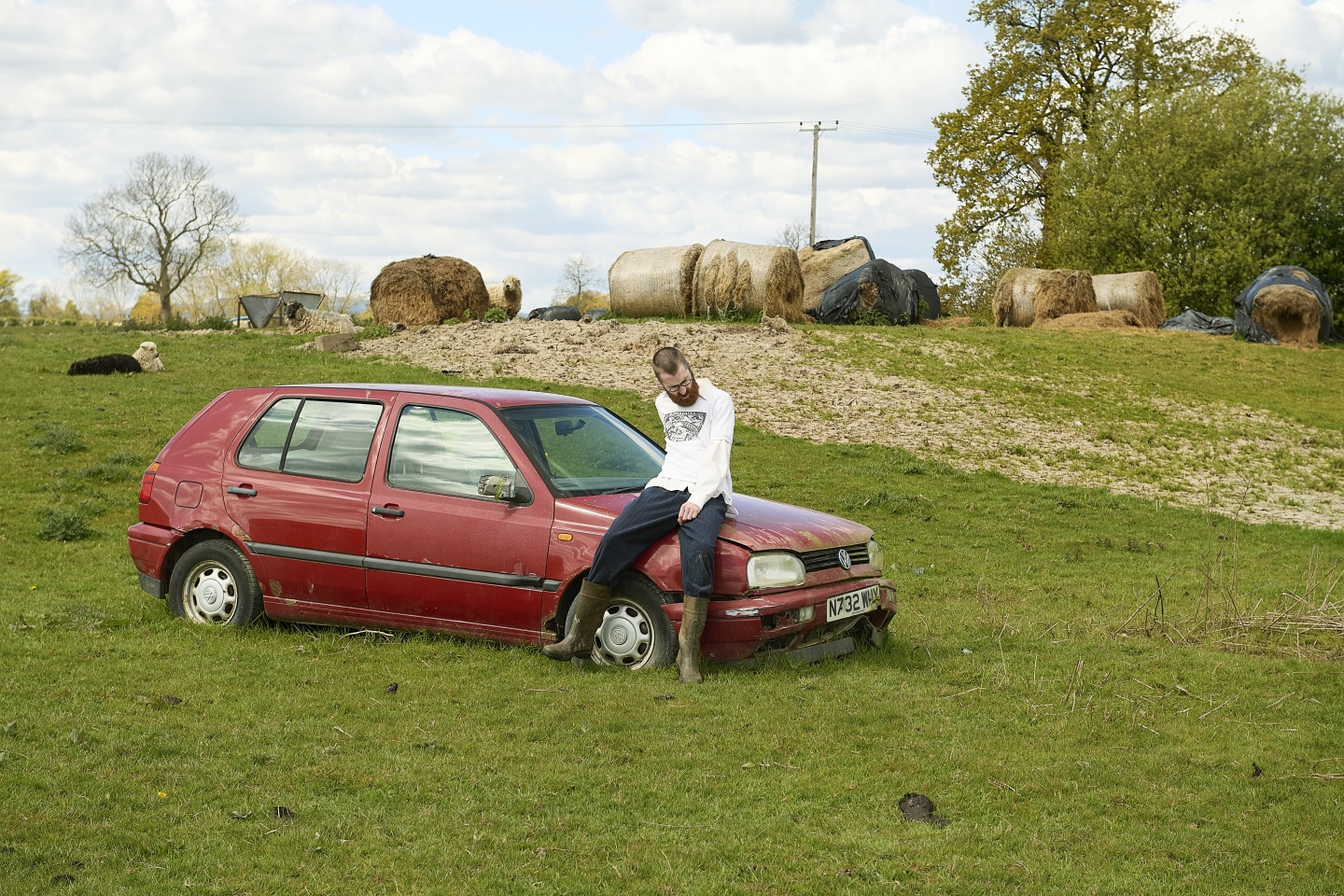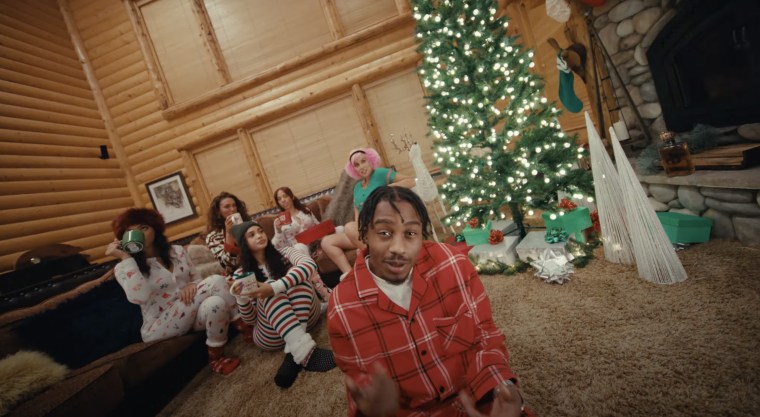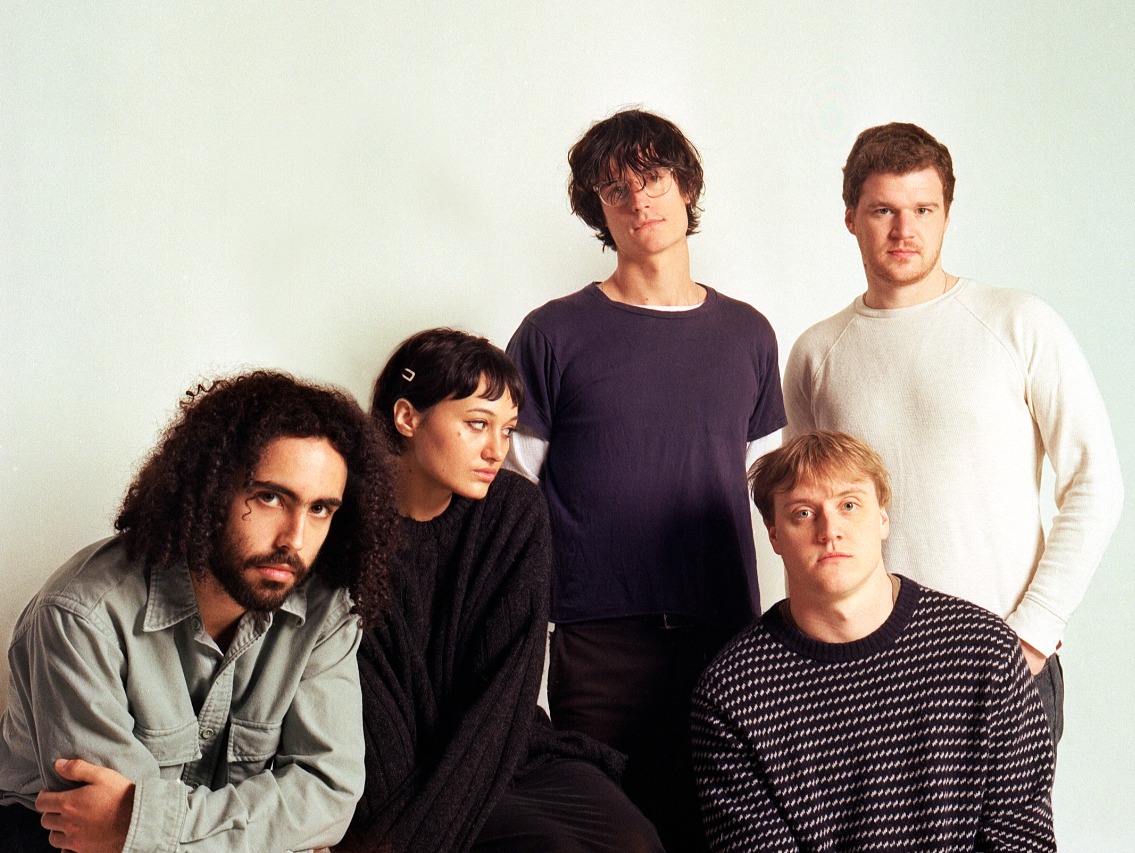Jerskin Fendrix. Photo by Tim Gutt.
Jerskin Fendrix, with a coffee in one hand and a slice of orange cake in another, has some thoughts about death in art. Too often, the trained pianist and violinist says, filmed depictions of our mortality are flattened into an overbearing sense of loss complete with a melancholic piano part. Running through the kaleidoscope of emotions the death of a loved one brings into focus, he lays it out across a table in an east London cafe near to his home.
“Death can be relieving in some circumstances,” he says. “It can be funny. It can be trivial. It can be hugely sad. It can also make you really angry. Whatever you can feel towards someone in their life, you feel towards them in death. And it has to be noticed like that.”
Fendrix, who was born Joscelin Dent-Pooley, has had a lot of time to think about all of this. His new album, Once Upon A Time. . . In Shropshire, is a totemic piece of work inspired by the loss of a close friend to suicide and, later, his father though illness. As the album title would suggest, however, Fendrix’s focus is not just on the people he loved, but the rural westerly English county in which he was raised and which he remains deeply romantic about. His feelings about the place run so deep, in fact, that it impeded the album’s progress.
“While I was working on the album my mother moved away from Shropshire,” he explains. “So I didn’t have a house there anymore. That meant that when I finished the album I was effectively saying goodbye to my childhood. That is where my soul is buried.”
Then came Fendrix’s move into the world of film composing. His 2020 debut Winterreise caught the attention of surrealist auteur Yorgos Lanthimos, who brought him on board to score his film Poor Things. Fendrix earned his first Oscar nomination and has gone on to work with Lanthimos on two more projects, including the upcoming Bugonia. Lanthimos, alongside regular collaborator Emma Stone, made a video for … Shropshire single “Beth’s Farm.”
It was during a break between the Lanthimos productions that Fendrix was able to concentrate on an album that would not just honor his late father and also his best friend, but capture the majesty of an idyllic childhood and put a bow on the opening chapter of his life. Understandably, it was a struggle. “I think the amount of time it took probably let it mature and be more multifaceted,” he says of an album that took him five years to finalize. “The initial stuff I was writing was quite angry.”
He took comfort in the idea of it being the responsibility of those closest to the deceased to reflect their love back out into the world. For Fendrix, who cut his teeth in the same south London post-punk scene as artists such as Black Midi and Black Country, New Road, that charts a pretty jagged path.
There are moments of widescreen post-rock largesse that lend the album an epic sense of awe, while other parts are antsy and claustrophobic. “Together Again,” meanwhile, is a quasi-musical theater tear-jerker that conures the dizzying excitement of drinking as a teenager (“Fucked with my boys by the chemical lake”) viewed through the lens of loss and missed opportunity.
On an album that successfully mines the complexity of grief, adolescence, and home, it is here where the clearest feeling behind … Shropshire is felt; that of someone wishing desperately that they could press pause on the world as it changes quicker than they can keep up with.
The FADER: Did making an album about death allow you to process the loss you suffered in the past few years?
Jerskin Fendrix: It’s an ongoing process. The thing about songwriting is, in any other walk of life, if you go through a bad break-up or lose someone close to you, it’s not really socially acceptable to still be sad about it after about six months. It can be seen as a bit pitiable or sad, like wallowing in your own bullshit. If you write a really good song about it, though, people want you to wallow in it for decades.
It’s a really lucky thing to be able to process any of this stuff at all. I feel I got to have a really unique experience with confronting it all and trying to capture everything good as well. The album runs from my childhood up until roughly present day. So to be able to also have a testament to that and to have that down in stone and to not forget that is very special.
A lot of people who grow up in very quiet, remote areas are desperate to leave. I sense that wasn’t the case for you?
No, I was very happy. My school didn’t have much of a music department but there were people maybe four or five years older than me that I would play violin with. This was during the whole Fleet Foxes, indie folk boom. They introduced me to stuff like Animal Collective and Joanna Newsome, when I must have been about 11 or 12. Here’s a world of very, very unusual music that I get to discover, and I’ve been made aware of, and I had no idea how any of it existed.
But most of this was online and listening to it privately. I think I’ve always been better at doing things by myself. I like working with others but I just write a lot better by myself, that’s how my machine works, unfortunately. I’m not a good collaborator.
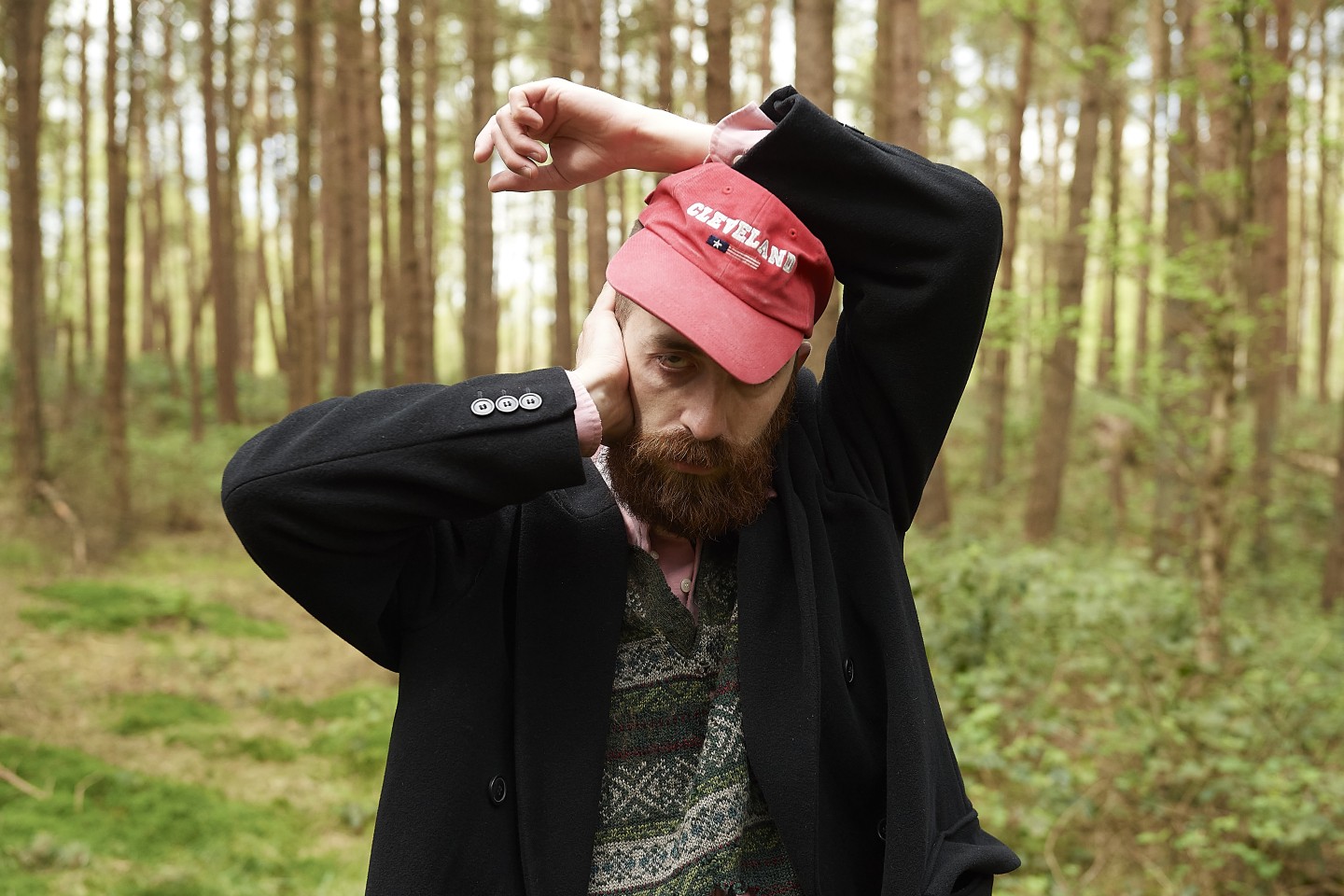
Jerskin Fendrix. Photo by Tim Gutt.
This album has been made across almost a five year period. When was the most intense work done?
The most challenging bit emotionally was the very beginning of 2023. I had a lot of lyrics which were not quite there, and I wanted to be really precise and descriptive with the words on this album. I needed it to be true but not so specific or personal that it was impossible to actually understand. It’s 20 years of experience and emotion so I basically shut myself in my studio because I needed a space where I could be very emotionally vulnerable and not worry about some engineer who I don’t know getting bored with me.
It was three months alone, digging up all this shit. That was pretty punishing, I would say. I wanted it to be very honest and bare, but my voice is very low and monotone, and I couldn’t have an album with just that, otherwise it would send me to sleep. I wanted it to be severe and sad when necessary, I wanted it to be as dumb as possible, I’m very open to embarrassing myself in these contexts, I’m always a bit suspicious of when people try and sing about something intense or personal or bare and they sound a bit too sexy when they do it.
You first emerged alongside a group of likeminded south London artists, some of whom have tried to distance themselves from that scene. How do you feel about it all?
I would never distance myself from The Windmill. My generation of artists, bands like Black Country, New Road, Black Midi, Jockstrap. Ethan P. Flynn were all made up of people who were really good at music and really interested in their production. No one was really copying each other, but there was an unspoken, tacit agreement of not being lazy. There was a real desire to be interesting and develop new stuff rather than ever being derivative or lazy. That’s the spirit that I remember and I’m very grateful for that environment. I don’t care if the Windmill is in every article about me until I die.
You’ve made three films with Yorgos Lanthimos now. Do you see yourself as someone who makes music for movies or as someone who works with this one director?
At the moment, I’m just that. I’ve been very spoiled by this relationship. I’m given pretty unusual freedom and authority over what I write. Yorgos gives me and all of his collaborators a lot of trust. He doesn’t micromanage. I will send him a bunch of stuff and he will say yes or no. If he says yes, it’s in the film. In the case of the new one, Bugonia, I wasn’t allowed to read the script or know anything about the film. I just wrote a bunch of music based on the three words he gave me: bees, basement, spaceship.
Your work on Poor Things was Oscar-nominated. What are your memories of attending the ceremony?
Awards shows are a bit like birthdays. They’re way more fun to share than to have by yourself. I went to the ceremony with my mum. It was nice to show her that supporting me through my experimental music career wasn’t in vain. She got to meet Andrew Scott, which made her very happy. She got to tell her mates in the book group about that.
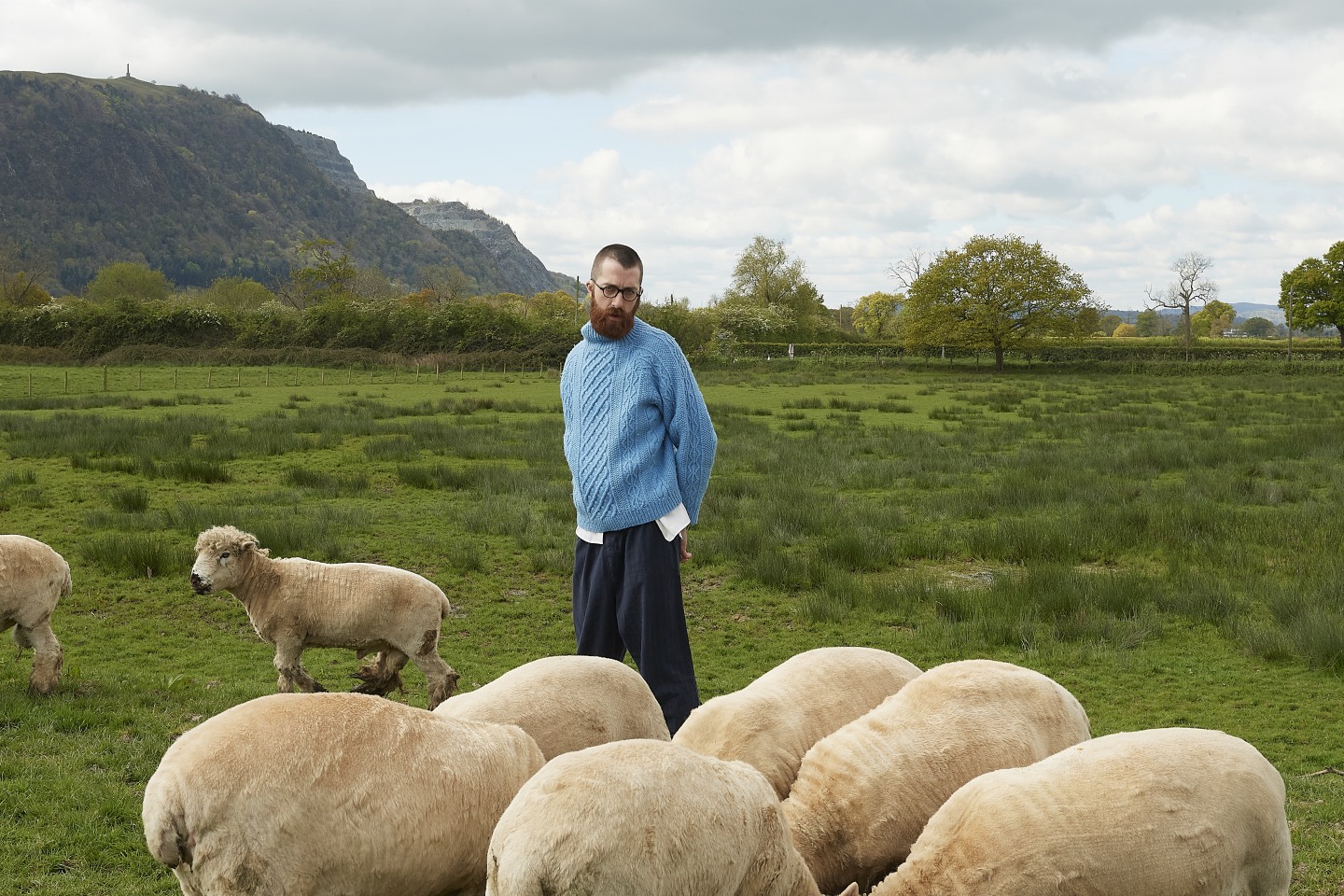
Jerskin Fendrix. Photo by Tim Gutt

